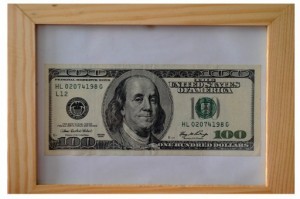Experts see demise of dollar as world currency

The diminishing role of the US in the global economy may lead to its fall as being the world’s reserve currency, according to economists at a forum during the 45th ADB annual meeting in Manila on Thursday, May 3, 2012. AFP PHOTO/ Rodrigo ARANGUA
It may only be a matter of time before the US dollar gets replaced as the main currency in international trade, according to economists attending the meeting of the board of governors of the Asian Development Bank.
For many years, the dollar “has been almost the sole ‘reserve’ currency,” banked on by the world economy, American economist Jeffrey Sachs said Thursday in one of the forums held during the ADB annual event. “Going forward, [the dollar] can’t play that role anymore.”
Sachs added that he could not see how the US dollar could remain as the world’s reserve currency when “the role of the United States in the global economy is diminishing.”
Several finance experts echoed Sachs’ sentiment, explaining that, with the greenback expected to weaken further, the world should turn to another currency to facilitate international trade and other commercial transactions.
“Having another reserve currency other than the US dollar is only a matter of time. We don’t know exactly when it will happen, but it will,” Neeraj Swaroop of Standard Chartered Bank said in an interview at the sidelines of the ADB meeting.
Article continues after this advertisementIn the area of merchandise trading, Swaroop said, countries have actually started to use currencies other than the US dollar.
Article continues after this advertisementSachs also said that some countries could turn to more than one currency in maintaining their foreign exchange reserves.
One currency being considered is the Chinese renminbi (RMB) which, according to HSBC, will inevitably become an international reserve currency.
The renminbi, or the yuan, has the potential to become an international reserve currency because China is continuing to post strong growth, becoming an important player in the global economy, Iwan Azis, ADB head for regional integration, said in the same forum.
Also, China is pushing to make the yuan the world’s reserve currency—a move that is seen to hasten the replacement of the US dollar, Azis added.
Already, British banking giant HSBC has mapped out a strategy to be a leading global player in the “renminbi banking” space.
This global strategy has filtered into the Philippine market with the bank’s introduction of RMB-denominated deposit and trade financing facilities, top HSBC officials said in a press briefing Thursday.
Spencer Lake of HSBC said the renminbi was increasingly becoming an important currency from a trade perspective.
Lake is in town as head of the HSBC delegation to the ADB event.
“If it were freely convertible today, it will be the second-largest currency in the world,” Lake said, noting that China has started to liberalize currency systems.
“It’s part of our core strategy to adopt and put in place all of the infrastructure and products to embrace [the renminbi] as a future reserve currency,” Lake said.
Lake said the bank’s strategy appeared to be gaining ground as indicated by a “significant” buildup of the RMB business in Hong Kong, Singapore and other Southeast Asian countries.
“The world is getting ready to adopt it as a world currency,” he said. “You’ll see it as a more common language.”
“Reserve” currency, which is currently used to describe the US dollar, is the denomination that accounts for bulk of the foreign exchange reserves of most countries. A country taps its foreign exchange reserves whenever it needs to pay off the costs of imported products and debts to foreign creditors.
After the United States fell into a recession in 2009, the US dollar began to weaken against emerging-market currencies.
The trouble with hanging on to the dollar as the main reserve currency is that it is prone to depreciation given the prevailing economic troubles of the United States. Depreciation of the US dollar, in turn, may lead to a reduction in the value of a country’s foreign reserves, experts said.
Apart from the yuan, Sachs said other viable currencies that could replace the US dollar were the euro and the Japanese yen.